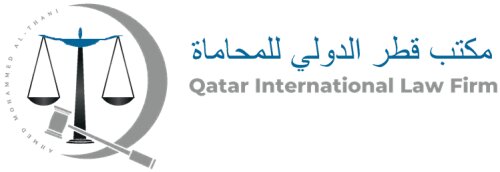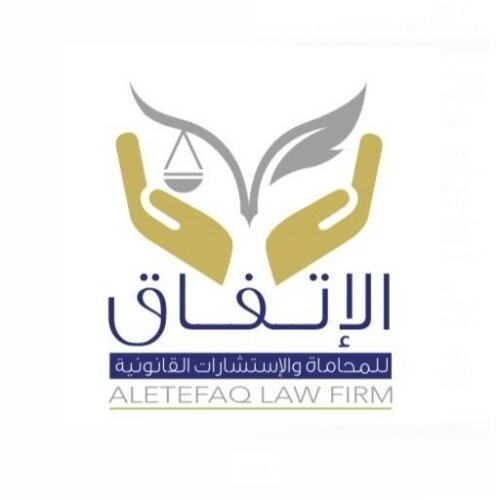Best Civil Rights Lawyers in Qatar
Share your needs with us, get contacted by law firms.
Free. Takes 2 min.
Or refine your search by selecting a city:
List of the best lawyers in Qatar
About Civil Rights Law in Qatar
Civil rights in Qatar are shaped by the legal traditions derived from Islamic law, state legislation, and international standards. While the Qatari constitution guarantees several individual rights and freedoms, including equality before the law, freedom of expression, and the right to privacy, the practical application of these rights can vary. Discrimination based on gender, nationality, religion, or economic status is a concern, and there are specific laws that address these issues. Understanding the balance between these rights and the cultural and legal context of Qatar is essential for navigating civil rights issues in the country.
Why You May Need a Lawyer
There are several situations where seeking legal advice on civil rights in Qatar may be necessary:
- Discrimination Claims: Whether it's in the workplace or in accessing services, individuals may face discrimination based on nationality, gender, or other protected characteristics.
- Labor Rights: Migrant workers in Qatar frequently encounter legal issues related to employment contracts, wages, and working conditions.
- Freedom of Expression: Those involved in media, publishing, or activism may need legal guidance due to restrictions on expression and press freedoms.
- Privacy Violations: Legal advice may be needed if there are breaches in the confidentiality of personal information or unauthorized surveillance.
- Judicial Process: Navigating the legal process or defending against charges may require expert legal assistance to ensure a fair trial.
Local Laws Overview
Understanding the key local laws that impact civil rights in Qatar can help individuals better prepare for potential legal issues:
- The Constitution of Qatar: Provides a framework for rights such as equality, freedom of expression, and privacy.
- Labor Law: Governs employment practices, worker rights, and employer obligations, with special provisions for expatriate workers.
- Cybercrime Law: Governs online activities and can impact freedom of expression and privacy rights.
- Family Law: Influenced heavily by Sharia law, impacting rights related to marriage, divorce, custody, and inheritance.
- Criminal Law: Provides for penalties in cases of defamation, trespassing, and other offenses that may relate to civil rights.
Frequently Asked Questions
What rights are guaranteed under the Qatari constitution?
The Qatari constitution guarantees several rights, including equality before the law, freedom of expression, and the right to privacy. However, some of these rights may be subject to restrictions based on public order and morality.
How can I address workplace discrimination in Qatar?
If you face workplace discrimination, you can file a complaint with the Ministry of Administrative Development, Labour, and Social Affairs, or seek legal advice to explore further legal actions.
Are there legal protections for expatriate workers in Qatar?
Yes, expatriate workers have legal protections under the labor law, including contractual commitments, minimum wage standards, and working conditions. Legal recourse is available for breaches, although enforcement can be challenging.
Is freedom of expression protected in Qatar?
While the constitution provides for freedom of expression, it is subject to laws regulating media and speech, particularly concerning issues viewed as sensitive to national security or public order.
What should I do if my privacy rights are violated?
In case of privacy violations, it is advised to consult a legal expert who can guide you on pursuing the matter legally, potentially with reference to the Cybercrime Law.
Can women in Qatar access the same legal rights as men?
While the constitution provides for equal rights, practical differences remain, particularly in matters of family and personal status law, which are influenced by Sharia principles.
How can I seek legal help if falsely accused of a crime?
If falsely accused, contacting a lawyer who understands Qatari criminal law is crucial to ensure due process and fair trial rights are upheld.
What resources are available for legal aid in Qatar?
There are both private law firms and, in certain cases, public legal assistance available. Resource centers may also offer guidance, particularly for labor issues.
What is the process to challenge a legal decision in Qatar?
Decisions can be appealed through the Qatari judicial system at different levels, from primary courts to the Court of Cassation, with legal guidance advisable for navigating this process.
How do international human rights standards apply in Qatar?
Qatar has acceded to various international human rights treaties, which can influence domestic practices, though implementation can vary. Legal experts can provide insight on leveraging these standards for civil rights issues.
Additional Resources
Here are some resources that can be helpful for those seeking legal advice in civil rights:
- Ministry of Administrative Development, Labour, and Social Affairs: Offers resources and grievance mechanisms for labor issues.
- National Human Rights Committee (NHRC): Provides support and advocacy for human rights issues in Qatar.
- Qatar Foundation for the Protection of Women and Children: Offers resources for family-related legal issues.
- Private Law Firms: Numerous firms specializing in civil rights and labor law can assist in legal proceedings and consultations.
Next Steps
If you require legal assistance concerning civil rights in Qatar, consider the following steps:
- Identify the Issue: Clearly define the legal issue or rights violation you are experiencing.
- Gather Evidence: Collect all relevant documents, correspondence, and evidence related to your case.
- Consult a Lawyer: Engage a legal professional specializing in civil rights to discuss your situation and explore legal options.
- Engage Resources: Utilize governmental bodies and organizations for support and guidance tailored to your issue.
- Consider Mediation: If possible, explore mediation or arbitration as an alternative to formal legal proceedings.
Act swiftly to ensure your rights are protected and to leverage the appropriate legal frameworks for your situation.
Lawzana helps you find the best lawyers and law firms in Qatar through a curated and pre-screened list of qualified legal professionals. Our platform offers rankings and detailed profiles of attorneys and law firms, allowing you to compare based on practice areas, including Civil Rights, experience, and client feedback.
Each profile includes a description of the firm's areas of practice, client reviews, team members and partners, year of establishment, spoken languages, office locations, contact information, social media presence, and any published articles or resources. Most firms on our platform speak English and are experienced in both local and international legal matters.
Get a quote from top-rated law firms in Qatar — quickly, securely, and without unnecessary hassle.
Disclaimer:
The information provided on this page is for general informational purposes only and does not constitute legal advice. While we strive to ensure the accuracy and relevance of the content, legal information may change over time, and interpretations of the law can vary. You should always consult with a qualified legal professional for advice specific to your situation.
We disclaim all liability for actions taken or not taken based on the content of this page. If you believe any information is incorrect or outdated, please contact us, and we will review and update it where appropriate.
Browse civil rights law firms by city in Qatar
Refine your search by selecting a city.
















